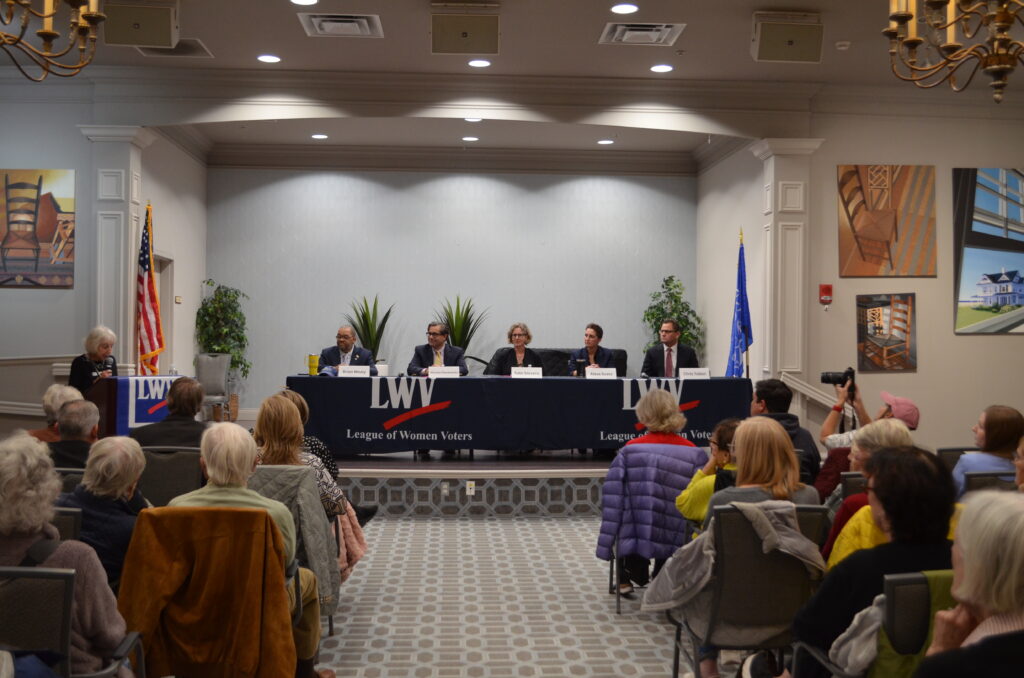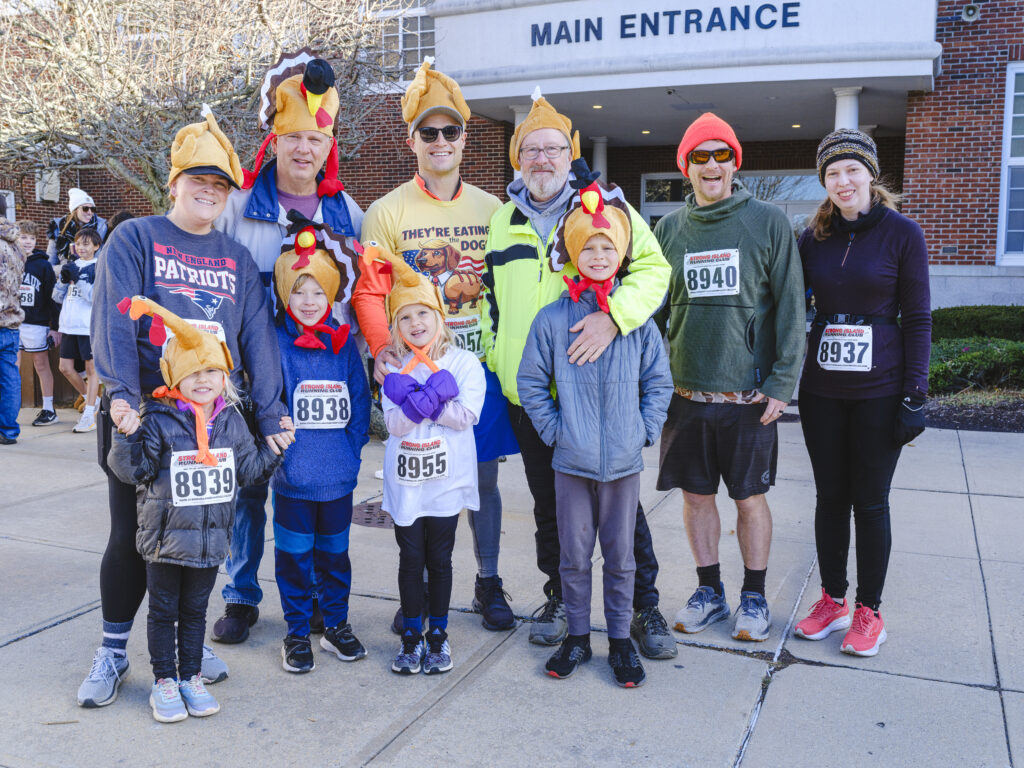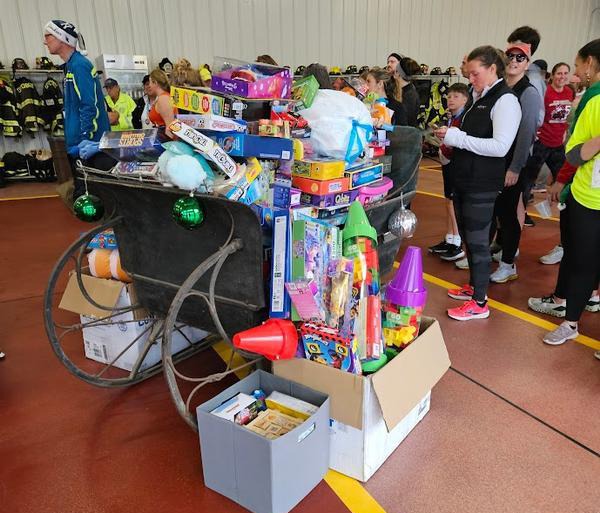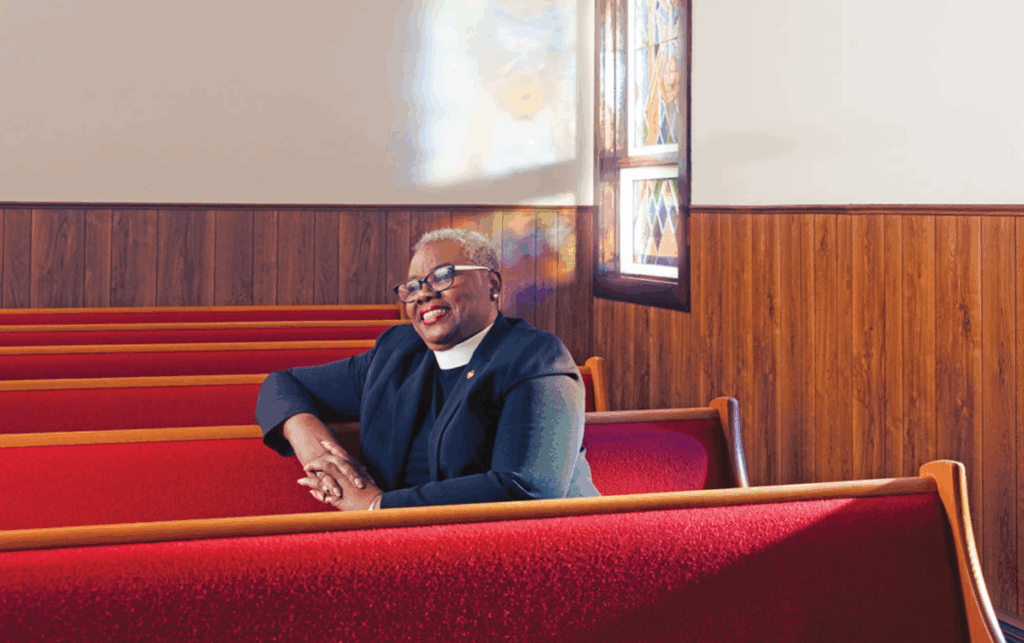Southold Town Board candidates make final pitches before early voting begins

Affordable housing took center stage at the final Southold Town Board candidate debate Thursday night at Peconic Landing in Greenport — as candidates presented sharply different solutions to a crisis that has pushed the town’s median home sale price north of $1 million.
Hosted by the League of Women Voters of Hamptons, Shelter Island and the North Fork, the forum, held two days before early voting began on Saturday, Oct. 25, also covered zoning and the relationship between Fishers Island and the rest of Southold’s hamlets.
On creating more affordable housing opportunities
Democratic challenger Alexa Suess called affordable housing a “macroeconomic” and “complicated” issue, noting that the median sale in Southold Town in 2024 was $1.2 million. In order to qualify for this type of sale, a household must make an average of up to $300,000, she said.
“It’s very difficult to find employees year-round because nobody can afford to live here, including myself,” the Greenport resident and business owner said. “If you enjoy going to get an heirloom tomato at a local farm stand, if you like calling a plumber and having them show up, if you like being able to get volunteer firefighters or EMS services — those things require people, and those people require housing.”
She proposed solutions such as creating a community housing land trust through a private and public partnership, stricter short-term rental legislation that brings more stock into the market, and designating Southold as a Pro-Housing community, which would not raise taxes or cede zoning authority, but would provide Southold with access to “millions of dollars” of state funding.
Southold GOP candidate Chris Talbot, current senior building and zoning inspector for the Village of Southampton, and running mate Nicholas Planamento, both agreed there needs to be a more diverse housing stock.
When discussing workforce housing for farmers, Mr. Talbot floated the idea of a minor zoning code adjustment to allow for tiny homes to be built on small subdivisions. Additionally, he said that, if elected, he plans to streamline Southold’s building department and its permit processes.
“Affordable housing is a deal that I think we’re going to get solved by public-private partnership,” Mr. Talbot said. “We’re going to have to work with some of these subdivisions and get some land donated to the town, or the town can purchase land to do some more consolidated subdivisions in there. You can sell those pieces of property to local residents who are on the affordable housing list and either let them build a house, or we can coordinate with builders in town to get those houses built.”
On Southold’s zoning update process
The town’s ongoing comprehensive zoning update stirred up some back-and-forth between Democratic incumbent Brian Mealy and Mr. Planamento. As the current vice chairman of the town’s Zoning Board of Appeals, the zoning update is one of Mr. Planamento’s top priorities because he believes the process has been “flawed” from the start.
He said he felt there should have been community discussions on the zoning update before Southold Town hired a consultant, with whom they’re no longer working.
“I think that today, we need to look at our zoning from a 21st-century standpoint: to have workable, walkable and livable communities,” Mr. Planamento said. “Why haven’t there been any new construction projects? Why isn’t there any affordable housing created today? It’s my goal to do it immediately.”
Each candidate was given three pink cards to use for rebuttals, and following Mr. Planamento’s comments, Mr. Mealy flashed his first one. He said sometimes plans need to be adjusted, and while he felt the consultant gave the town some good ideas, the Town Board decided to go in a different direction.
He praised planning director Heather Lanza and deputy planner Mark Terry for leading the charge in the zoning update. The councilman added that the update is a bipartisan initiative, and neither side “should be complaining about the process.”
“[It’s] key that we get that established and locked in to be a guideline and a road map to how people approach the code, and it should be more efficient, we’ve been working for that,” Mr. Mealy said. “We really have undergone the most transparent, the most outreach for this process that I can remember in town history.”
On improving communication with Fishers Island residents
Democratic challenger Kate Stevens pledged to be “a bridge” between Fishers Island and Southold Town, and stressed the need for a communicator and connector between the two communities. She proposed that Southold Town’s annual meeting on Fishers Island should be biannual, to give those residents and committees more opportunities for direct engagement with town leadership.
“The status quo is not working between Fishers Island and the rest of mainland Southold — we’re way too siloed,” Ms. Stevens said. “More interactivity will remove so much misunderstanding and false narratives between our communities.”
She was the only candidate for the Fishers Island seat present at the debate. Republican Stephanie Hall was absent due to a work conflict in Massachusetts. Councilwoman Jill Doherty read an opening statement on her behalf.
Mr. Mealy praised Ms. Stevens for being the sole Fishers Island candidate at the debate table, which led to some grumbles from a few people in the audience. When someone called his comment “unfair,” as Ms. Hall was working, Mr. Mealy stood firm and said, “That’s my opinion.”
Election Day is Tuesday, Nov. 4.









